How Is Philips Improving Healthcare Through AI?
How Is Philips Improving Healthcare Through AI?
April 12, 2017
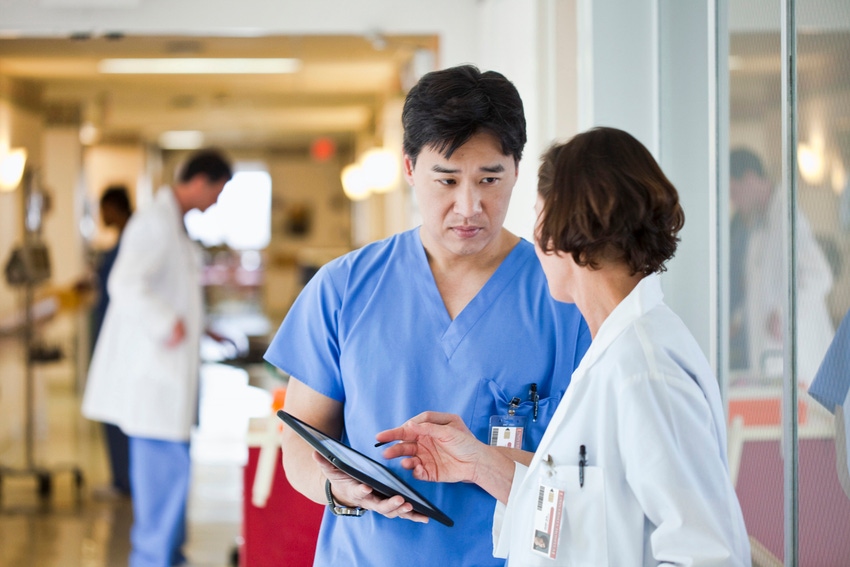
NETHERLANDS - AI Business recently secured an interview with Jeroen Tas, Chief Innovation & Strategy Officer at Philips, aiming to understand how they are currently implementing artificial intelligence, specifically in the healthcare sector, and how they plan to do so in the future.
[caption id="attachment_7324" align="alignleft" width="300"]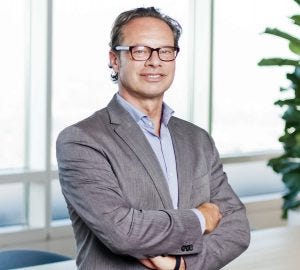 Jeroen Tas, Chief Innovation & Strategy Officer at Philips[/caption]
Jeroen Tas, Chief Innovation & Strategy Officer at Philips[/caption]
The Dutch-based technology company, Philips, for many consumers is famous for their electronics: televisions, home appliances and lights. However, they are also heavily involved in the consumer health and healthcare sector, and this is where Jeroen Tas (who'll keynote at the AI Summit in London) is a pivotal player.
Tas is the Chief Innovation & Strategy Officer at Philips and very kindly took time out of his busy schedule to talk to AI Business about how they are using artificial intelligence in the healthcare sector today, and how they plan to use the new technology going forward.
AI bringing structure to healthcare
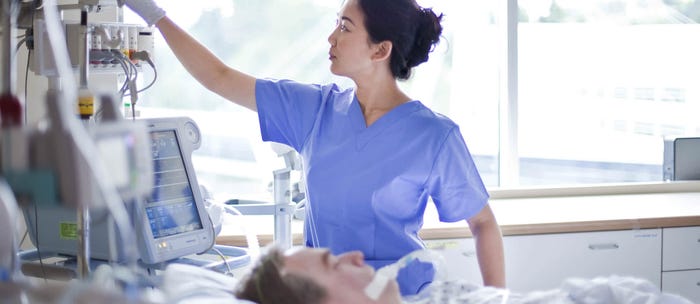
"Since last year, we are a 100% health technology company," Tas informed us during our interview. It's quite a bold statement, but whilst speaking to Philips' Chief Innovation & Strategy Officer, it dawned on us how vital AI is, and will be, in healthcare. Currently, 60% of their R&D is dedicated to software and a large part of these researchers are working on AI as well. "I would say that it’s an integral part of our strategy. We see most of our products in the future supported by AI," stated Tas.
Tas went on to highlight how unstructured data in the healthcare industry currently is. He told us that “Over 75% of all information on patients is not structured.” This is one of the areas where AI can improve things drastically. Currently, a lot of the data is still not digitised, and doctors still have to complete manual tasks such as writing their own reports, which takes up a lot of their time.
What Philips intends to do with their AI products is offer doctors and hospitals the, as Tas put it, "ability to bring all relevant patient information of any form together to help do a precise diagnosis, support personalised therapy and intervene early to avoid deterioration," and ultimately, support "people to live healthy lives and avoid chronic diseases or to help them self-manage conditions in better ways."
"We are very complex as human beings," Tas continued. "Many clinical aspects are symptoms pointing to deeper lying causes." AI can help us analyse a patient's data: how they eat, sleep, drink, their social activity and their personal health measurements and medical information... to find correlations and patterns in these large data sets which will give a much richer picture of that patient. Philips is therefore using AI to "help care providers to enable more preventative care approaches on individual and population level and give a more precise diagnoses in less time."
Ensuring the correct diagnosis with support of AI
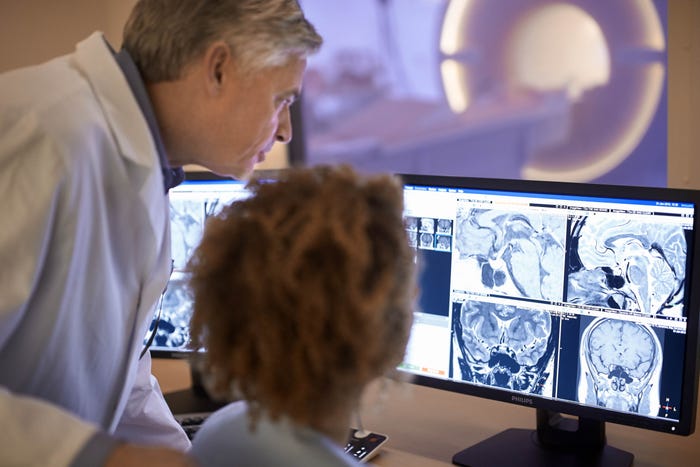
One of the key areas where AI can really excel in healthcare is genomics, which is the branch of molecular biology concerned with the structure, function and mapping of genomes. Tas claimed, "The base of many diseases lies in the genome. Through genomics we can help identify areas where you are at risk."
Today, Philips is using advanced big data analytics to bring genomics data together with information on your family history, lab results, medical scans, other diseases and results from previous treatments. They are supporting doctors to set up precision medicine programs in local and regional community hospitals, outside of the context of the large academic centres.
“AI applied to genomics will enable us to take it to the next level and scan staggering amount of genomics data to find patterns in large groups of patients. Combined with your personal genomics data this could help give an accurate prediction of what ailments you might suffer from in the future.” He claimed that this area of medical science was going to be "mainstream sooner than we think”.
Tas went on to explain how Philips is "the leader of patient monitoring" with over 275 million people being monitored with their devices every year. Patient care in the general ward or ICU can generate staggering amounts of data points per patient per day. This information can be very overwhelming for the professional staff.
"We want to help them extract meaning from all this data, what patients to prioritise and give them predictive insights of what’s going on with that patient even before signalling an alarm. We are already looking into what role AI, machine learning and analytics can play in navigating these mountains of data," he highlighted.
"We expect AI to help us spot more subtle lacks of vital organ functions and look for specific patterns in greater detail. If the heart changes from green to orange, we could for instance automatically highlight exactly what’s going wrong or proactively suggest additional tests that need to be performed," explained Tas.
However, what happens to a patient once he or she is discharged from hospital? Tas explained how Philips is also working on products that can monitor patients in their own homes. Today’s products and telehealth programs are already successful in connecting hospitals and homes but soon technology can enable patient information to be streamed continuously and fill relevant blind spots that care providers would otherwise miss out on, for instance by using wearable biosensors, which "you place it on your chest, it will look for changes in respiratory or heat rates, matching it with the patient’s profile, and will then enable care providers to intervene in the case of deterioration.”
Incidentally, Philips is already making this product available today for first pilots on cardiology departments in the hospital where they aim to give staff deeper insights and patients freedom of movement.
These aren't the only areas in which AI is being successfully applied or is foreseen to play a significant role in the healthcare sector. Tas also spoke of how they're using AI to detect subtle details in raw images and changes over time that are invisible to the naked eye and could be an indication for early stage Alzheimer's or MS. "We start looking at the raw image for tiny little dots that can only be read by the software," he detailed.
Working closely together with doctors Philips has also demonstrated the use of AI to improve disease screening, from detecting tuberculosis in chest x-rays to screening for lung cancer from high risk patients using CT.
According to Tas, these AI systems could help doctors to, "become good at early detection, but also tracking which therapies work." He explained that "the more you know about the patient, the more accurate you can be." It's all about ensuring that you get the right diagnosis, and the early you can do that, the better, which is why I think AI is becoming so pivotal in the healthcare sector."
"By bringing together all this information and combining the knowledge and experience of our doctors with analytics, machine learning, I think we could dramatically improve the efficiency of the diagnosis," detailed Tas. "The earlier a doctor finds what’s wrong and what drives a disease, the better the chances are for a therapy that is highly effective," he finished.
AI and the future of healthcare
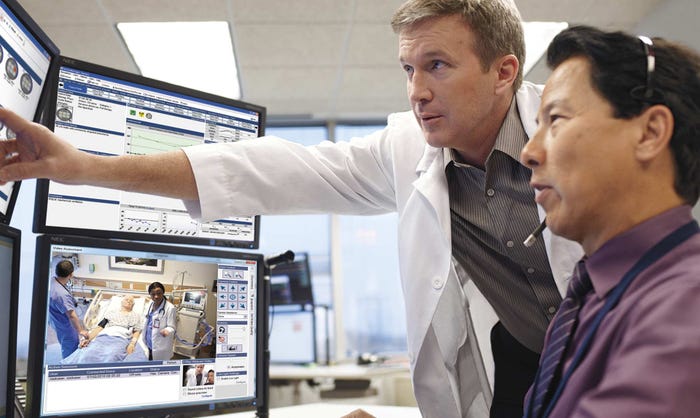
We then asked Tas to comment on how he thought AI was going to affect the healthcare industry in the future. "AI is going to play a big role in healthcare. That’s not really up for debate," he replied. He reiterated what an important part the new technology will play in helping doctors selecting the right therapy for patients. "It will help selecting the right theory, but also in fine tuning these therapies," highlighted Tas.
He also stated that AI will have a "huge impact of effective drug use, and the way we do science," and will, "open up a whole new world of medicine research." However, deploying AI in the healthcare sector does have its challenges. "There’s also a number of real challenges," Tas began. He pointed out that one big issue surrounding AI in healthcare was getting "clean and accurate" data. Having "good quality data" is a big challenge in the healthcare industry, it takes decades to build these databases and a lot of hospitals' records are still on paper.
Another key challenge that Tas highlighted was "transparency". "AI systems cannot be black boxes. We need to understand what happens in between data input and output and any doctor should always be able to explain the decisions made regarding diagnostic outcomes or treatment. Therefore, any AI should be a combination of data driven and knowledge driven learning," he commented. He then gave us the example of a radiologist, which is one area in which AI is making huge strides forward.
Philips is applying AI in radiology for anatomical context, to learn user preferences, and to automate measurements of organs and lesions. It can for instance, help radiologists to spot very subtle changes over time in scans that are impossible to see. Tas questioned whether certain radiologists would be "willing to embrace such new tech," or whether they would simply, as Tas put it, "resist it" if AI supported solutions are not transparent.
A last challenge Tas mentioned was the lack understanding about the clinical context that many technology companies have that have no footprint in health care. Local populations and customers can be different from what the system was originally trained on using a central data set.
However, Tas is very optimistic about the future of AI in healthcare. "It will take some time, but in some places it will go fast," he concluded. Tas even finished off our interview by claiming that working in this area with Philips has been the most exciting time in his career. "I’ve been in IT all my career, and I can safely say this [working on digitisation and AI in healthcare] has been the most exciting time in my career so far," he concluded.
About the Author(s)
You May Also Like
.jpg?width=700&auto=webp&quality=80&disable=upscale)
.jpg?width=700&auto=webp&quality=80&disable=upscale)
.jpg?width=700&auto=webp&quality=80&disable=upscale)
.jpg?width=300&auto=webp&quality=80&disable=upscale)
.jpg?width=300&auto=webp&quality=80&disable=upscale)
.jpg?width=300&auto=webp&quality=80&disable=upscale)
.jpg?width=300&auto=webp&quality=80&disable=upscale)
.jpg?width=300&auto=webp&quality=80&disable=upscale)